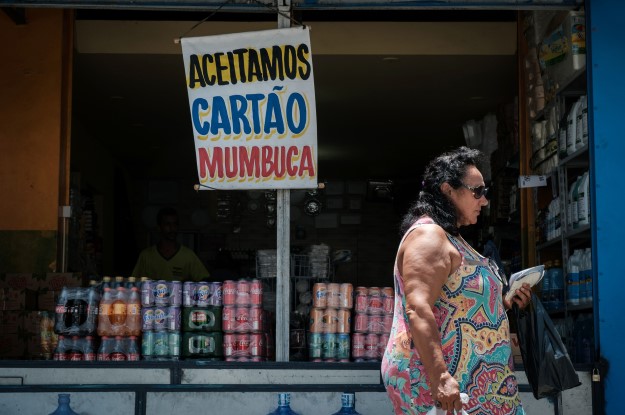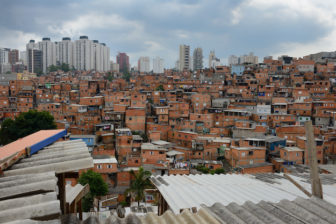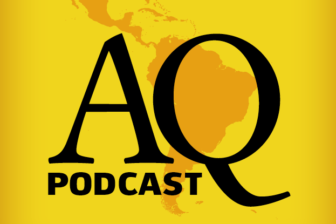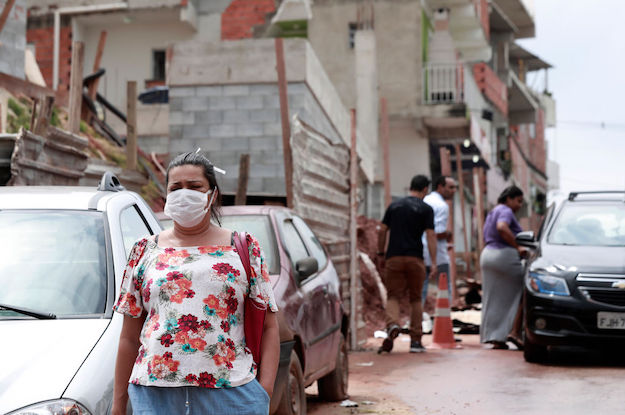Watch top economists from Argentina, Brazil and Colombia debate Universal Basic Income
When stay at home orders took hold across Latin America, the army of informal workers that sustains day-to-day life found themselves, overnight, unable to meet their most basic needs. The ranks of the extremely poor swelled in a matter of days.
To stave off a humanitarian disaster, policymakers deployed emergency cash transfers as quickly as politically and logistically possible. Even in the most conservative chambers, the discussion moved from “if” to “how,” and raised the question: What if such payments were permanent?
The conversation has in turn pushed Universal Basic Income, or UBI, into the mainstream. What was once considered a policy dream on the margins of politics has now become the center of a debate over what would happen if governments guaranteed income to their constituents.
Since 2013, one town is trying to answer such questions.
In Maricá, a coastal town in the state of Rio de Janeiro with a population of 160,000, a basic income guarantee program is under way, with the objective of reaching universal status. “We have a target to be able to expand to all residents,” Igor Sardinha, Maricá’s Development Secretary, told AQ.
The program currently reaches 42,000 residents – about a quarter of the population. That makes Maricá possibly the largest basic income guarantee project in the world. “Comparing to other experiments, this is a really large number,” said Fabio Waltenberg, a professor of Economics at Universidade Federal Fluminense, who is coordinating a research project on Maricá’s “Citizen Basic Income” program.
“What we have here is a middle-income city in a middle-income country,” Stephen Nuñez, the lead researcher in guaranteed income at Jain Family Institute, told AQ. “This will tell us a lot about implementing guaranteed income in an urban setting.”
For Maricá, funding for the program comes from the ocean: The municipality faces one of the most productive pre-salt oil basins in Brazil – the Lula field in the Santos basin. “About 60% of Brazil’s oil production is right offshore from us,” said Sardinha. At 74,000 reals, or about $13,000, the town’s GDP per capita beats that of São Paulo, the richest city in the country, where GDP per resident is 58,000 reals.
That windfall of course means Maricá has a fiscal reality that few can match, but its choice to deploy a basic income guarantee program is a gift for others. “Maricá will let us evaluate the impact of guaranteed income on inflation, jobs, consumption patterns, and even physical and mental health,” said Waltenberg, whose research project aims to interview 5,000 recipients.
“This is an unprecedented opportunity to see the full market effects of basic income guarantee in the wider local economy,” said Nuñez. “Other UBIs had mostly been constrained to a small population or were privately funded, which is not the case here.”
How it works
As income from the pre-salt oil fields started to flow in 2013, Maricá implemented its basic income scheme as part of a larger economic development plan which they dubbed a Solidarity Economy. The plan includes a rainy-day sovereign fund, where they deposit at least 5% of the oil royalties, a community bank and a digital currency, the mumbuca, named after a small river that crosses the town’s center.
To qualify, residents must show they have lived in Maricá for at least three years and, during this phase of the program, earn less than three times the minimum wage. “Our target is to expand to universal basic income once the sovereign fund is capitalized enough to support the program sustainably,” said Sardinha.
Qualified residents are issued a mumbuca card and a digital app and receive a monthly deposit in mumbucas at an exchange rate of 1-1 with the real. The program started with deposits of 70 mumbucas or about $25 per family at the time, but was expanded in 2019 from a family stipend to an individual monthly allowance equivalent to 75% of the poverty line income, or about 130 mumbucas per person.
The digital currency can only be used within town limits, an important detail for retailers based on this town just 40 minutes from downtown Rio, the state capital, as it directs residents to local merchants. “Our records show the mumbuca card is accepted in more places in Maricá than commercial cards,” Sardinha told AQ.
COVID-19
When the pandemic hit, Maricá’s city hall was able to quickly increase the benefit to 300 mumbucas per person and advance a special year-end bonus that was planned for December, while the federal government emergency assistance was surrounded by problems and delays.
“With this crisis we were able to see the advantage of having this structure in place,” said Waltenberg. “But with the caveat that, since it isn’t yet universal, they had to struggle to offer help to residents beyond the 42,000 mumbuca recipients.”
Simply put, Maricá has the cash. But how could other towns, or even states or nations, afford a similar program? Apart from a fiscal reform, Waltenberg said officials in other cities are looking at creating sovereign funds, even for municipalities that do not have a revenue stream from natural resources.
Whether this is the solution for Latin America’s inequality, the jury is still out. Researchers hope the Maricá experiment will shed light – and data – over the actual impact of a basic income guarantee in the economy. “Whatever we find here will be largely portable.” said Nuñez.
“The decision of adopting universal basic income means not doing something else, because governments have limited fiscal resources,” Samar Maziad, a senior economist at Moody’s, told AQ.
“From a credit risk standpoint, we all have seen that social safety nets are important,” Maziad said – but which safety net is best is the big question. “When you pay for one program, you forfeit another.”
—
Tornaghi is AQ’s managing editor. Reina is AQ’s production editor.






